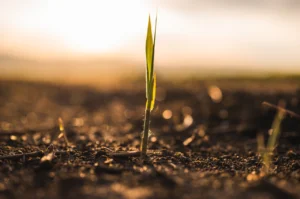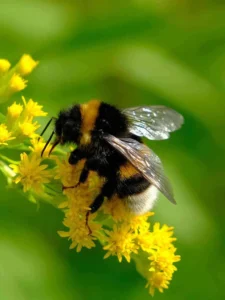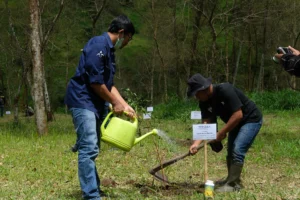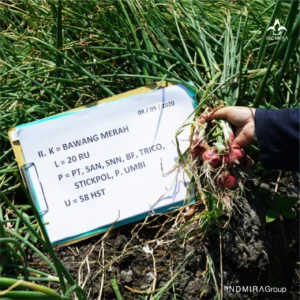The Earth is divided into land and sea. Both play vital roles in supporting the survival of all living beings. One of the most important elements of land, often called the lungs of the Earth, is the forest with its trees. Trees are essential to all aspects of life on Earth—food, economy, and the environment all depend on their existence.
According to Ten Million Trees, a tree standing 100 feet tall can have around 200,000 leaves with stomata that carry out photosynthesis. A single large tree is able to draw 11,000 gallons of water from the soil and release it back into the atmosphere as oxygen and water vapor in just one growing season. This ability sustains countless humans and animals on Earth. If one tree can make such an impact, imagine what 1,000 trees could do.
The presence of trees supports natural ecosystems by providing habitat and food for birds, mammals, and insects. In addition, planting trees improves water quality, as their complex root systems reduce surface runoff and erosion. This process allows for greater groundwater recharge.
Forests and wooded areas also provide environmental benefits such as serving as riverbank buffers, filtering sediments, preventing chemicals and sediments from entering rivers, stabilizing riverbanks, shading and regulating river temperatures, absorbing carbon to reduce greenhouse gas emissions, and reducing downstream flooding.
There are countless benefits of trees to life, but here we summarize seven of the most important ones:
- Pollution Reduction
Through photosynthesis, trees absorb carbon dioxide and release oxygen. This allows trees to directly help reduce the rising levels of pollution worldwide. A mature tree can absorb up to 21 kg of CO₂ annually and produce enough oxygen for two adults. With more trees on Earth, humanity can balance oxygen and carbon dioxide levels to fight pollution. - Urban Benefits
A single tree on a street can provide direct benefits to city life. This is especially advantageous as the cost of reforestation is minimal compared to the benefits cities receive. Urban trees extend the lifespan of roads by reducing asphalt expansion and contraction due to heat. - Health
Beyond increasing oxygen levels, trees also filter airborne pollutants that trigger asthma. This makes them a natural solution to rising asthma cases in urban areas, where many trees are cleared for roads, housing, or commercial purposes. Research has also shown that hospital patients recover faster when they have views of greenery, as trees act as a natural pain reliever. - Energy
Strategically placed trees can reduce the need for air conditioning and fans in homes and buildings, saving up to 30% in energy consumption. The cooling effect of a young, healthy tree equals that of 10 air conditioners. Trees can also reduce annual heating and cooling costs by 8–12% in households. - Flood Prevention
Forested areas with dense tree cover filter and regulate water flow, as their canopies intercept rainfall before it hits the ground. On average, tree canopies intercept 10–40% of rainfall depending on the species. A mature spruce tree can hold over 4,000 gallons of rainwater per year. In urban and suburban areas, one mature tree can prevent 500–760 gallons of stormwater runoff annually. - Food Security
Trees influence the availability of food in many regions. Research shows that forests play a crucial role in providing nutrition. The International Union of Forest Research Organizations (IUFRO) highlights the role of forests in reducing hunger and improving human nutrition. Agroforestry can offer solutions to the tension between agriculture and deforestation, reframing forests not only as sources of timber but also as providers of nutrition. - Preserving the Food Chain
Trees are vital for sustaining wildlife, serving as both food producers and habitats. They play a key role in maintaining the natural food chain. Without trees, many animals lose their habitats, threatening ecosystems and disrupting the balance of nature.
Considering the many benefits trees bring to human life, it is essential to raise awareness of their importance. With deforestation and the loss of large trees that sustain millions of living creatures, Indmira calls on nature enthusiasts to participate in tree-planting initiatives as part of reforestation efforts. By planting just one tree, we help sustain countless lives on Earth.








